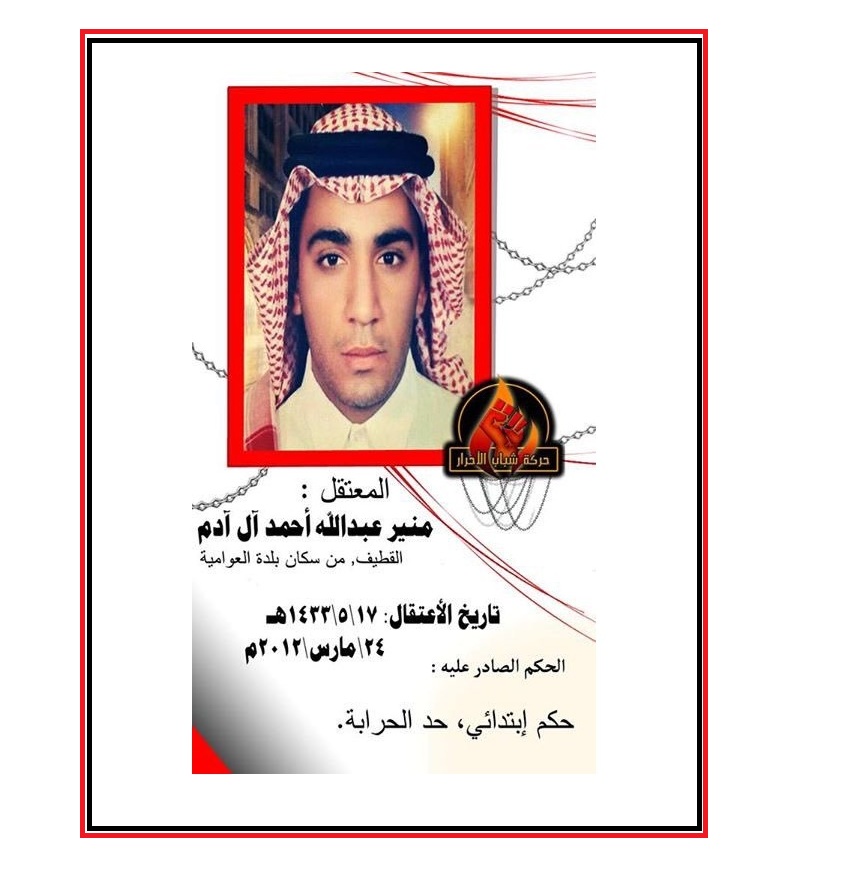Family of Saudi Shiite prisoner who was sentenced to death, along with 13 others on Wednesday, refused the court ruling, stressing that the sentence was oppressive and lacked tangible evidence.
Family of Saudi Shiite prisoner who was sentenced to death, along with 13 others on Wednesday, refused the court ruling, stressing that the sentence was oppressive and lacked tangible evidence.
A Saudi court sentenced to death 14 people to death in Qatif region in Eastern province. It handed long-term jail sentences against nine others, while only one was acquitted. Theses 24 people are known as the "cell of 24". They were arrested in 2012 over taking part in 2011 pro-democracy protests against the Saudi regime. Many of them were minors when arrested.
Few hours after the death sentences were announced, the family of Munir Abdullah Ahmad Al Adam released a statement in which it refused, saying: "We refuse the unjust and oppressive ruling against our son, and lacked tangible evidence since it was based on testimonies written by the interrogator's hand."
The statement described the ruling as a "play orchestrated by interior ministry, backed by Justice ministry."
"The prosecutor himself said during a court session there was no evidence for the ruling to be based upon," the statement said, stressing that Munir Al Adam was subjected to horrible torture which led to hearing loss in one of his ears.
Al Adam family urged the immediate release of its son and without condition, calling on the international community to interfere in a bid to save Munir from death.
Saudi Arabia’s Shia citizens face systematic discrimination in public education, government employment, and permission to build houses of worship in the country.
International human rights organizations have repeatedly dismissed the judicial processes that lead to the conviction of political dissidents in Saudi Arabia.
In mid-May, Human Rights Watch said Saudi Arabia’s trial of 32 men for allegedly spying on behalf of Iran is a “mockery of justice” because it “has violated the basic due process rights of the defendants.”
According to Human Rights Watch, Saudi authorities have not permitted the defendants to meet with lawyers or provided all of the court documents necessary to prepare a defense after more than three years of detention and investigation.